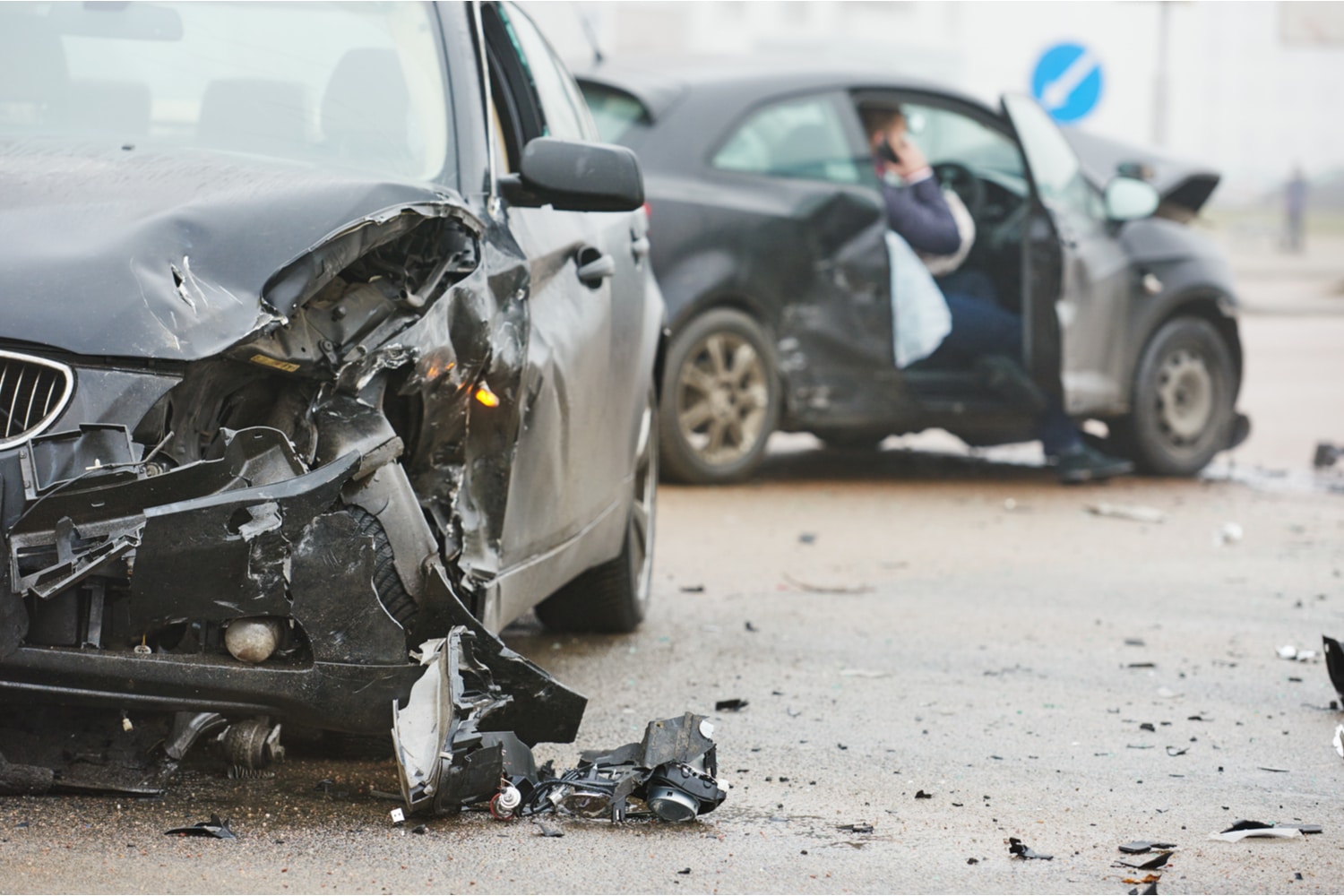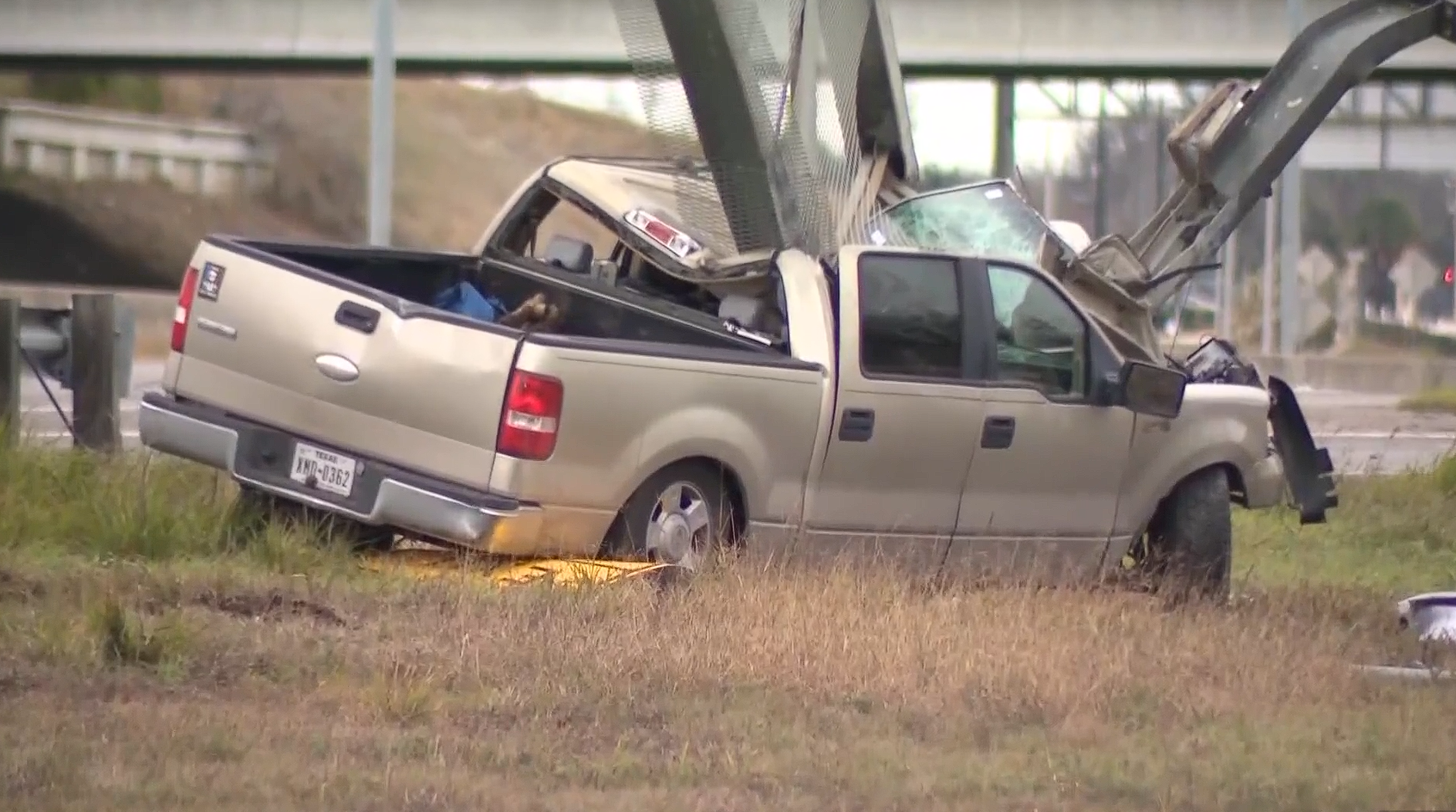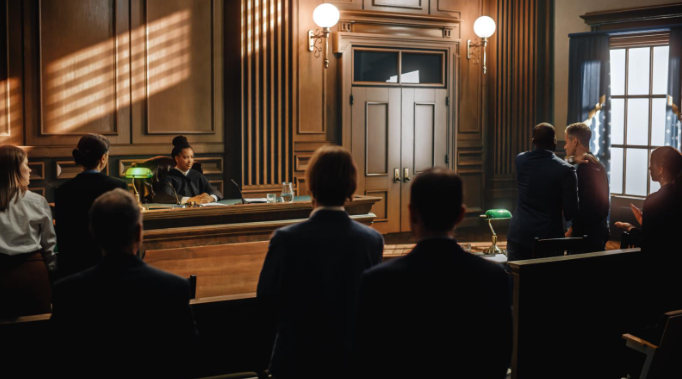There are about 1.2 million uninsured drivers on Texas’ roads, and millions more only have the state-required minimum in insurance coverage. Unfortunately, if you are in a crash and the negligent driver doesn’t have enough (or any) auto insurance, you may have a hard time earning compensation for your injuries or property damage.
Crosley Law’s car accident lawyers help crash victims get the financial resources they deserve, which might include compensation from their uninsured and underinsured motorist policies (UM/UIM). Here’s an overview of how your personal injury claim can be affected by another driver’s insurance policy and how you can protect yourself from both uninsured and underinsured drivers.
What Is Uninsured/Underinsured Motorist Coverage?
All Drivers Must Carry Liability Insurance in Texas, but a Minimum Policy Might Not Fully Cover Your Damages
Under Texas law, all drivers must have liability insurance on their vehicles, and must provide proof of insurance when requested by a law enforcement official. You must, at the very least, have 30/60/25 coverage which includes:
- Coverage of $30,000 for injuries per person
- Up to $60,000 per accident for bodily injury claims
- $25,000 of coverage for property damage claims
When you injure someone in a car wreck or damage their property, your liability insurance should step in and cover these losses, up to your policy limits. However, Texas’ minimum liability limits might be too low if you cause a multi-vehicle accident, catastrophic injuries, or the other driver’s car is totaled.
That’s why many people supplement their liability coverage with other auto insurance policies. Some of the most popular options in Texas include:
- Uninsured/underinsured motorist coverage: compensates for your losses after someone with insufficient auto insurance injures you in a crash. All auto policies in Texas should include UM/UIM coverage, unless you told the company in writing that you don’t want it.
- Personal injury protection (PIP) coverage: helps pay you, your family and your passengers’ medical bills and lost income after a car wreck. You should have PIP coverage unless you declined it in writing.
- Collision coverage: pays to repair or replace your car after a crash
Why We Encourage Everyone to Get Uninsured/Underinsured Motorist Insurance
Many crash victims are surprised how quickly you can deplete a liability insurance policy after a serious or multi-car crash. Even drivers with higher policy limits can become underinsured after a serious collision. For example, it’s not hard to max out a policy if a crash involves:
- Significant injuries, such as traumatic brain injuries (TBIs) or neck or spinal cord injuries
- A child or young person who faces a lifetime of medical treatment or reduced wage earning capacity
- Multiple vehicles
- Injuries to numerous people
- Wrongful death
Without UM/UIM coverage, you might end up paying for medical treatment for your injuries if you’re in a car accident and the other driver lacks sufficient insurance coverage.
Uninsured motorist (UM) coverage can help pay for your medical bills and property damage expenses if the at-fault party in your car accident case does not carry any liability insurance. A UM/UIM policy would also provide compensation after a hit and run or when an unlicensed driver caused your injuries.
Uninsured motorist (UM) coverage can help pay for your medical bills and property damage expenses if the at-fault party in your car accident case does not carry any liability insurance. A UM/UIM policy would also provide compensation after a hit and run or when an unlicensed driver caused your injuries.
In other words, UIM coverage is designed to help fill the gaps, covering your medical expenses, lost income, pain and suffering, and other losses when the other driver didn’t have enough high enough policy limits. UM and UIM coverage can help cover:
- Medical expenses for injuries that resulted due to an accident
- The costs of treating emotional and mental issues that result from an accident
- Loss of income and lost wage-earning capacity
- Pain and suffering
- Funeral and burial costs
In the State of Texas, your auto insurance company should offer you UM/UIM coverage, but you can decline it in writing. However, it’s in your best interest to buy as much UM/UIM coverage as you can reasonably afford.
Here are three reasons why you should consider carrying additional UM/UIM coverage on your auto insurance policy:
- It’s relatively affordable: While you’re the cost of your premiums will depend on your age, driving record, the type of car you drive, and other factors, UM/UIM coverage shouldn’t raise the annual cost of your insurance premiums by more than a few percentage points. And that annual cost will certainly be much less than the cost of paying medical bills out of pocket after a car wreck.
Typically, you can add UM and UIM coverage to your policy in $5,000 increments. You also might be able to purchase additional bodily injury and property damage coverage separately, or as a combination. Many people add enough property damage coverage to replace their vehicles.
- It provides broader coverage: While your health insurance may pay for some of your medical bills, it may not cover all your expenses after a wreck. You still might have to pay your health plan’s deductible, co-pays, and other costs. And your health insurance will not cover lost income, pain and suffering, and other losses beyond your medical bills.
- It’s less risky: Rather than relying on other people’s insurance, you can protect yourself against drivers who do not purchase adequate insurance with enough coverage. In addition to UM/UIM coverage, a PIP policy can help cover your medical bills and lost wages after a crash regardless of who was at fault.
Filing a UM/UIM Claim Can Help You Cover Your Expenses After a Car Wreck
After a car crash, you likely will have several insurance claims to file. Because Texas uses a fault-based system, you’ll need to file a claim with the negligent driver’s insurance company after a wreck rather than your own. However, that’s just the beginning of your claim.
Second, you’ll need to notify your own insurance company and file UM/UIM and PIP claims, assuming you did not opt out of these policies. Finally, your lawyer might also identify other defendants who contributed to your crash, such as companies who made or sold defective products, bars and restaurants that overserved drunk drivers, or the at-fault driver’s employer.
Filing multiple insurance claims isn’t an easy process—and the companies will likely try to shift responsibility to one another. To help make your UM/UIM claim more successful, you and your personal injury lawyer should collect the following information after a car accident:
- Copies of the police report
- The other driver’s name, address, phone number, license plate number, and insurance information
- Names and contact information for witnesses
- Time, date, and location of the accident
- Accident scene pictures or video that you might have recorded
- Copies of medical reports and doctors’ bills
Notably, your UM coverage won’t pay in a hit-and-run accident if you didn’t report it to police in Texas.
If you make a UM/UIM claim, you can expect the insurance company to investigate your medical treatment, the nature of your injuries, and the circumstances surrounding your crash If you had UM/UIM coverage at the time of a crash and the other driver’s policy limits won’t cover all the damages, you can file a claim with your insurance company. To get compensation, you must show that:
- Someone was negligent operating the vehicle that caused your crash
- You suffered injuries due to the negligent behavior
- The driver has insufficient insurance to cover your damages, including medical expenses and lost income
Your insurance company may look for possible defenses they can use to deny your claim or reduce its value. They might dispute the necessity of your medical care or blame you for the crash. At this point, you might feel like your own insurance company isn’t even on your side – and you might not be wrong.
Unfortunately, even if you’ve done all the right things, an insurer can still deny your claim by blaming you for the crash, claiming you’re exaggerating your injuries, or pinning it on a preexisting condition.
RELATED: What Can You Do When an Insurance Company Acts in Bad Faith?
You Can Fight a UM/UIM Denial With Help from a Car Accident Attorney
If the insurance company denies your claim, you can file a lawsuit demanding compensation. While Texas typically applies a two-year statute of limitations for claims against a negligent driver, UM/UIM claims have a longer statute of limitations and must be filed within four years of the insurance company’s denial.
However, you should not wait until the last minute to file your claim. As time passes, you risk losing evidence, and you might find it hard to find a skilled attorney that will take your case. If you contact Crosley Law after a crash, we’ll immediately launch an investigation and begin identifying witnesses, compiling evidence, and calculating your damages to give your claim the best chance of success.
Since you can only count on the insurance company to look out for its own interests, you should always consult an experienced personal injury lawyer after a car crash. Our clients are our top priority, and our detail-oriented and aggressive approach to car crash claims has won us the respect of our peers and the insurance companies.
RELATED SUCCESS STORY: Hit by an Underinsured Motorist, Tiffiny H. Turned to Crosley Law
Crosley Law: We Are Advocates for Car Accident Victims
If you or a loved one have been involved in an auto accident that an uninsured driver causes, you should speak with an experienced car accident attorney right away, especially if you or your passengers have sustained injuries. The attorneys at Crosley Law are experienced in car wreck cases and we are here for you.
Contact us today for a free case evaluation at 210-LAW-3000 | 210-529-3000 or fill out our short online contact form to schedule a free consultation with us.
References:
Insurance Research Council. (2021, March 22). One in Eight Drivers Uninsured. Retrieved from: https://www.insurance-research.org/sites/default/files/downloads/UM%20NR%20032221.pdf
Texas Department of Insurance. (n.d.). Automobile Insurance Guide. Retrieved from: https://www.tdi.texas.gov/pubs/consumer/cb020.html
The content provided here is for informational purposes only and should not be construed as legal advice on any subject.









